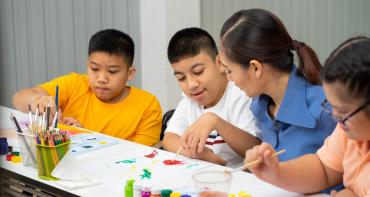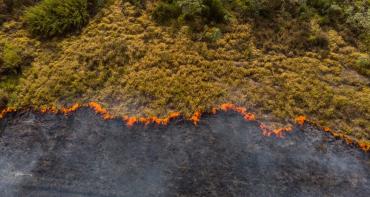Powered communities are empowered communities
The 25-year-old Nigerian energy innovator was recognised for transforming waste into solar-powered innovations that deliver clean energy to over 10,000 refugees in Africa. Stanley is the co-founder of LightEd, a company that turns plastic waste into solar-powered charging stations. These stations supply electricity to communities with little or no access to power, including thousands of displaced persons.

"I really was not expecting to win the award,” he said. “When my name was called, I was shocked. It took me a moment to believe it. I was really grateful because it was an amazing accomplishment. Just representing Africa, being the best from Africa out of 56 countries. “I knew the work we were doing was important, but the other finalists were doing amazing things as well. I was grateful that my work was spotlighted because it gives the work that I do a different level of recognition. It is a very big accomplishment".
The Youth Awards for Excellence in Development Work, known as the Commonwealth Youth Awards, is a flagship project of the Commonwealth Secretariat, which has supported youth development for over 50 years.
The Secretariat’s Head of Social Policy Development, Layne Robinson, explained:
“These awards enable us to learn more about the work being done by young people across the Commonwealth and offers us an opportunity to support them tangibly. By amplifying their work, the awards help them become beacons to others and contribute to building the next generation of leaders”.
'Our goal is to make clean energy available to everyone'

Lighting up communities
Stanley grew up in Onitsha, a bustling town in southeastern Nigeria. Like many homes in the country, his family did not have reliable electricity. Power cuts were frequent. Sometimes, they had electricity for only a few hours in an entire week. He often had to study using candles or kerosene lamps.
These struggles sparked his curiosity about how electricity worked and finding solutions to the challenges around him.
The story behind LightEd
During the COVID-19 lockdown in 2020, Stanley wanted to create something useful that could help poor communities. That’s how LightEd started. His innovation is helping to address Nigeria’s electricity problem. According to the World Bank, 85 million Nigerians do not have access to electricity from the national grid.

Solar panel charging stations
One of LightEd’s flagship projects is the construction of charging stations made from plastic and recycled waste, fitted with solar panels. People use them to charge phones, lamps, and small devices. In many of these areas, it is the only source of electricity available.

LightEd has trained over 6,000 students and recycled more than 20,000 kilograms of plastic. The company has also raised over 500,000 dollars from donors and partners to expand its work.
“Our goal is to make clean energy available to everyone,” said Anigbogu, who added that the company works closely with communities to create solutions tailored to their needs.
The solutions we provide are community-led. Each community has different needs. We begin by asking questions like: where should the station be built? What is their energy need? What does the community require? We also add artwork to the stations, designed to reflect what the community feels the station represents. When we work with an artist, we hold a workshop and collect input from the people. We also work with them to decide how the station will be managed. Once it is built, we hand it over to the community.
LightEd has set up solar charging stations in two big camps for displaced people in Nigeria. They also provided solar lights and lamps, making it easier and safer for people to move around at night, especially women and children.

Before we received solar lamps from LightEd, I struggled to study at night. Now, I can do my homework anytime, and my grades have improved!
“I want kids in refugee camps to be able to study at night. Before, everywhere used to be dark, and when you put in streetlights, it lights up the surroundings and creates a sense of safety and also supports their mental health. I think when you’re living in a dark environment and you’re already in an inhospitable situation, having proper lighting helps give you a sense of security. That contributes to an overall stronger feeling of safety. Aside from that, it also helps reduce costs, such as the money spent on things like kerosene or candles, because all you need to do is go and charge your lamp or other device. It also reduces the negative health effects from the smoke and fumes people inhale when using traditional lighting solutions,”
Looking ahead
Stanley’s journey has not been without challenges. But for Stanley, none of this is a reason to give up. He is now working on building charging stations that also double as spaces for peace dialogue.
He said:
“I am working with the Commonwealth Peace Prize winners, who are also Nigerians. We are discussing building a charging station that can serve as a space for intergenerational and interreligious dialogue. In Nigeria, where there are many religious conflicts, I believe it is a good idea to use access to energy as a way to bring people of different faiths together, to talk and understand each other”.




